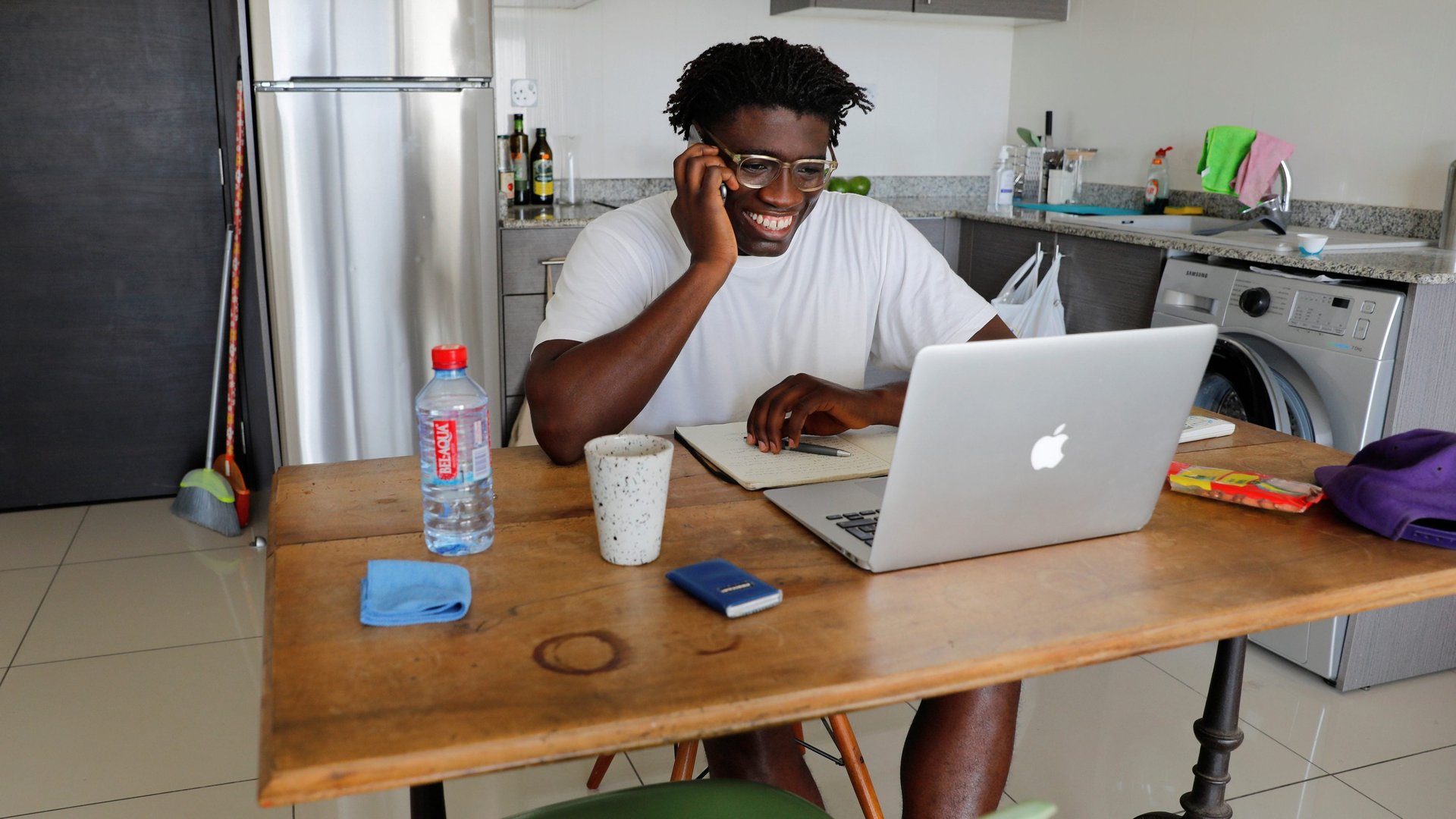A new survey captures the mood of those who now work from home
It might not be an exaggeration to say that never before has the world of work changed so fast for so many. Not surprisingly, it’s stressing people out.


It might not be an exaggeration to say that never before has the world of work changed so fast for so many. Not surprisingly, it’s stressing people out.
Qualtrics, a firm that helps companies manage employee experience, identified more than 1,000 US adults who habitually worked from an office but were working from home in the wake of the coronavirus pandemic. The firm surveyed the group on March 19 and March 20, after the Covid-19 risk had driven many countries and local governments around the world to advise as many people as possible to stay at home.
Though the results suggest there could be some silver linings (Quartz member exclusive)—and there are certainly some ways in which employers can help keep that stress to a minimum—the findings are likely to ring true for plenty of those who have set up a home office overnight.
Welcome to the worried club
For most people, working from home in this environment isn’t relaxing: 54% of people felt more stressed working from home, compared to 18% who felt less stressed; and 52% felt more anxious working from home compared to 14% who felt less so.
Neither of those stats necessarily has to do with working from home per se. Rather, it’s likely the presence of a pandemic that’s freaking people out. Among the stressors identified, some were work-related, like increased difficulty communicating, but many were more general, such as working out how to balance job tasks with caring responsibilities, stress related to Covid-19 news, and uncertainty about the future.
People are also feeling lonely. When asked what was the hardest part of working from home, the biggest reason, with 25% of responses, was feelings of social isolation, while 10% said not feeling connected to their team made things harder. (Some 13% said they were interrupted by their children all the time, but parents were also least likely of any group to worry about loneliness.)
Manager expectations
The good news for employers is that many seem to be doing ok—more than 80% said they felt supported by their immediate manager in the transition to working from home. But only 65% said they felt clear about what was expected of them.
Clarity of communication can go a long way toward alleviating concerns, and a lack of it can exacerbate an already stressful situation. ”Those who lack clear expectations are 51% more likely to feel less productive at home,” Qualtrics noted in a blog post. “Newly remote workers who don’t receive clear expectations from managers are twice as likely to feel anxiety since working at home than those whose managers do provide clear expectations.”
More than two-thirds of the survey respondents said they wanted to receive Covid-19 updates from their employer at least daily.
Cozier, and without the commute
It’s no surprise that the opportunity to save time which would otherwise be spent commuting was a benefit cited more than any other (by almost a quarter of responders). Commuting is often cited as one of the worst aspects of workers’ lives. Having a more flexible schedule and being able to wear comfier clothes were also at the top of the list of benefits of the new arrangement.
About half of those surveyed said their partner was now also working from home. (Quartz members can read our essential ground rules for working at home with a partner.) Thus far, despite the close quarters, the arrangement didn’t seem to be having a detrimental effect on relationships: A third of respondents said it was having a positive impact, more than half said it wasn’t making a difference, and less than 15% said it was having a negative impact.